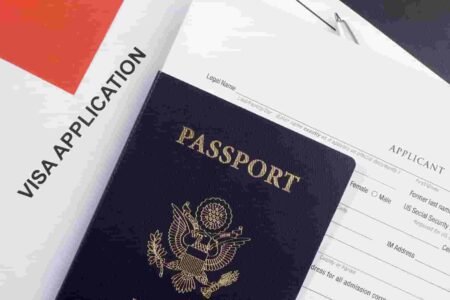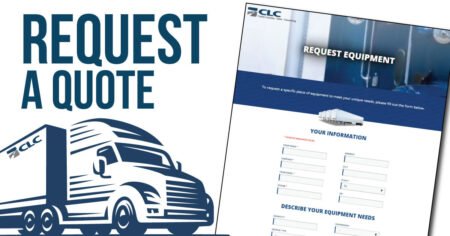In today’s rapidly evolving business landscape, compliance with industry regulations and continuous skill development are more crucial than ever. Organizations are under increasing pressure to ensure their employees are well-equipped with the necessary knowledge to meet regulatory standards while fostering ongoing professional development. An HR training portal is a powerful tool that can streamline these processes, ensuring both compliance and skill development are effectively managed. Let’s dive into how HR training portals can make a significant impact on your organization’s compliance and skill-building efforts.
1. Streamlining Compliance Training
Simplifying Compliance Management
Compliance training is critical for businesses operating in regulated industries such as healthcare, finance, manufacturing, and education. An HR training portal can centralize compliance training materials, making it easier to manage and track employee progress. The portal can house all relevant policies, procedures, certifications, and legal guidelines, ensuring that employees have immediate access to the training they need.
- Centralized Content Repository: All compliance-related training materials, such as industry regulations, workplace safety procedures, and anti-discrimination policies, can be stored in one easy-to-navigate location.
- Customizable Training Programs: HR training portals can be customized to align with specific industry standards and the unique compliance needs of the organization.
Automated Tracking and Reporting
Tracking compliance training is a time-consuming process, but with an HR training portal, it becomes much more streamlined. The portal can automatically track employee progress, notifying both employees and HR teams when compliance training is due or overdue. This ensures that deadlines are met and that the organization stays compliant with regulatory requirements.
- Real-Time Tracking: HR teams can monitor employee progress in real time, checking completion rates and identifying any gaps in training.
- Automated Reminders: Employees receive automated reminders to complete their compliance courses, helping them stay on top of deadlines without manual intervention.
Certification and Compliance Records
Many industries require employees to maintain certifications and stay updated on the latest regulations. HR training portals provide a centralized system for tracking certifications and compliance records, making it easier for HR departments to stay organized and ensure that all employees meet the necessary requirements.
- Certification Management: Employees can store their certifications and training completions in the portal, and the system will notify them when certifications are close to expiring.
- Audit-Ready Documentation: HR training portals automatically generate reports that can be used for audits, demonstrating that the company is meeting its compliance obligations.
2. Enhancing Skill Development
Personalized Learning Paths
In addition to compliance, HR training portals are invaluable for enhancing overall employee skill development. These portals provide employees with access to a range of training programs tailored to their individual needs, career goals, and job responsibilities. By offering personalized learning paths, HR training portals ensure that employees are equipped with the right skills at the right time.
- Role-Specific Training: Training portals allow employees to access job-specific training, ensuring they develop the technical skills and knowledge needed for their positions.
- Career Progression: Employees can also choose courses that align with their career goals, helping them acquire new skills and prepare for future roles within the company.
Flexible Learning Options
HR training portals give employees the flexibility to learn at their own pace, which is especially important for skill development. Whether employees are balancing work with their studies or prefer to take their time with certain topics, training portals provide the flexibility to learn when and where it’s most convenient.
- On-Demand Learning: Employees can access training materials at any time, whether they are in the office, working remotely, or traveling.
- Modular Learning: Skill development courses are often broken down into smaller, manageable modules that employees can complete at their convenience, allowing them to progress without feeling overwhelmed.
Ongoing Skill Development
Skill development is an ongoing process, and HR training portals help employees stay updated with the latest trends, technologies, and best practices. By offering continuous learning opportunities, companies ensure their workforce remains competitive and well-equipped to adapt to changes in the industry.
- Regular Updates: HR training portals can be regularly updated with the latest content to keep employees informed about emerging trends, tools, and methodologies relevant to their roles.
- Cross-Departmental Learning: Employees can also explore training outside their specific roles, gaining knowledge in other departments, which can foster greater collaboration and a well-rounded skill set.
Gamification and Engagement
To encourage skill development and keep employees motivated, many HR training portals incorporate gamification elements such as badges, leaderboards, and progress tracking. These elements make the learning experience more engaging and enjoyable, driving higher participation and completion rates.
- Incentivized Learning: Employees can earn rewards, such as certificates or recognition, for completing courses, which motivates them to continue developing their skills.
- Interactive Training: Many portals also offer interactive features, such as quizzes, simulations, and case studies, to reinforce learning and make skill development more hands-on.
3. Ensuring Alignment with Organizational Goals
Consistent Training Across the Organization
An HR training portal helps ensure that all employees, regardless of their role or location, receive consistent training. This is essential for aligning skill development with the organization’s goals and values. When all employees are equipped with the same foundational knowledge and skills, the organization as a whole can operate more efficiently and cohesively.
- Standardized Training Programs: HR training portals provide standardized training materials, ensuring all employees receive the same essential information, whether they are new hires or long-term staff.
- Alignment with Company Values: By incorporating company values and objectives into the training modules, HR training portals ensure that employees are aligned with the organization’s culture and long-term vision.
Performance Monitoring and Feedback
HR training portals allow managers and HR teams to monitor employee performance and provide constructive feedback. By tracking completion rates, test scores, and overall progress, organizations can identify employees who may need additional support or further training, ensuring that skill development is consistently progressing.
- Performance Analytics: HR training portals provide data-driven insights into how employees are performing in their training programs, helping managers identify strengths and areas for improvement.
- Continuous Feedback: HR teams can use the portal to provide ongoing feedback and support, ensuring that employees stay motivated and on track in their development.
Conclusion
An HR training portal is a vital tool for improving both compliance and skill development in today’s business world. By streamlining compliance training, offering personalized learning paths, and providing flexible, on-demand access to learning resources, HR training portals help organizations ensure their employees are continuously developing the skills necessary for success. With the ability to track progress, monitor performance, and foster ongoing learning, HR training portals contribute to a well-trained, compliant, and engaged workforce that is ready to meet the challenges of tomorrow.
4o mini







